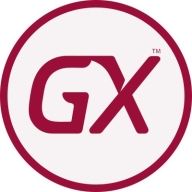

Ionic and GeneXus are competing products in the app development landscape. Based on data comparisons, GeneXus seems to have the upper hand due to its robust development capabilities.
Features: Ionic offers an open-source framework with ease of use for building hybrid mobile apps, featuring support for PWA, integration with Angular, React, and Vue, and Capacitor for access to native phone attributes like the camera. GeneXus provides automatic code generation and multi-platform deployment, integration features to align with various databases, and robust support for business applications with superior automation capabilities.
Room for Improvement: Ionic could enhance documentation and support for larger projects, improve integration with third-party services, and optimize its UI components for complex applications. GeneXus might benefit from improving front-end development tools, reducing initial setup challenges, and streamlining learning curves for beginners.
Ease of Deployment and Customer Service: Ionic offers a straightforward deployment process aimed at speed, supporting rapid app deployment and making it appealing for startups. GeneXus provides in-depth customer service and comprehensive deployment support, well-suited for enterprise clients needing extensive resources and robust implementation frameworks.
Pricing and ROI: Ionic is cost-effective with a flexible pricing model ideal for startups or smaller projects, emphasizing low initial costs. GeneXus has a higher setup cost, justified by extensive features and support, presenting potential for higher ROI in long-term projects appealing to enterprises seeking comprehensive solutions.
| Product | Market Share (%) |
|---|---|
| Ionic | 5.5% |
| GeneXus | 3.3% |
| Other | 91.2% |


| Company Size | Count |
|---|---|
| Small Business | 12 |
| Large Enterprise | 2 |
| Company Size | Count |
|---|---|
| Small Business | 7 |
| Midsize Enterprise | 2 |
| Large Enterprise | 6 |
What is GeneXus? GeneXus™ is the best Low-Code Platform that you don't know yet.
It's a Software Development Platform that simplifies and automates the tasks of creating and evolving enterprise applications and multi-channel user-experiences. Great Advantages:
- Higher productivity, with automatic maintenance & evolution
- Multi-Experience, we continuously create new code generators
- Agile, incremental approach, with fully functional prototypes
- Easier to learn, one single language to cover all technologies
- Future-proof, we've been around for 30 years, evolving for you
Key Differentiators against the competition:
- No runtime fees, we charge by developer
- Best theoretical framework, which allows us to evolve
- Best coverage in the market: Most technologies, most languages, most markets and industries
- We run on-premise or on the cloud
- Multiple starting points depending on the type of company you work in, with products for Students, Startups, ISVs, Corporate Development, and SAP technologies
GeneXus uses Artificial Intelligence techniques to create software, enabling truly incremental development of apps, providing a low-code, future-proof development platform for the leading execution platforms and languages, and the most popular DBMS.
Ionic is an open-source UI toolkit for developing high-quality mobile and desktop apps with web technologies such as HTML, CSS, and JavaScript. Ionic focuses on the frontend UX and UI interaction of an app – UI controls, interactions, gestures, and animations. It is simple to learn and can be used without any frontend framework by utilizing a simple script inclusion.
While previous versions of Ionic were strongly connected to Angular, version 4.x of the framework was re-engineered to serve as an independent Web Component library, with integrations for the newest JavaScript frameworks, such as Angular. Ionic works well in most frontend frameworks, including React and Vue, however some frontend frameworks require a shim to enable full Web Component support.
The official Ionic CLI, or Command Line Interface, is a tool that enables developers to easily construct Ionic apps and offers a number of useful commands. The CLI installs and updates Ionic and also includes a built-in development server, build and debugging tools, and much more. If you are an Appflow member, you may manage your account and carry out cloud builds and deployments via the CLI.
Ionic Features
Ionic has many valuable key features. Some of the most useful ones include:
Ionic Benefits
There are many benefits to implementing Ionic. Some of the biggest advantages the solution offers include:
We monitor all Mobile Development Platforms reviews to prevent fraudulent reviews and keep review quality high. We do not post reviews by company employees or direct competitors. We validate each review for authenticity via cross-reference with LinkedIn, and personal follow-up with the reviewer when necessary.